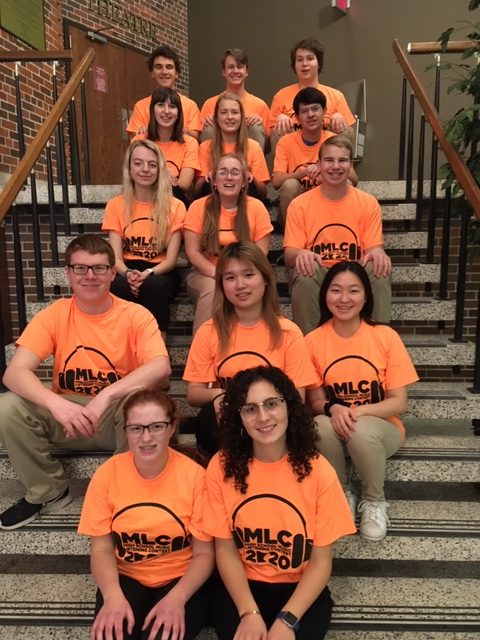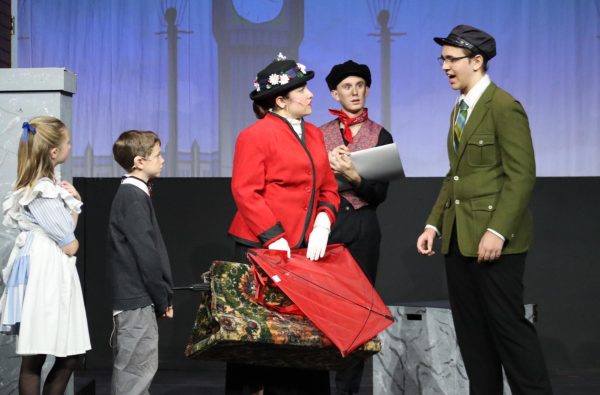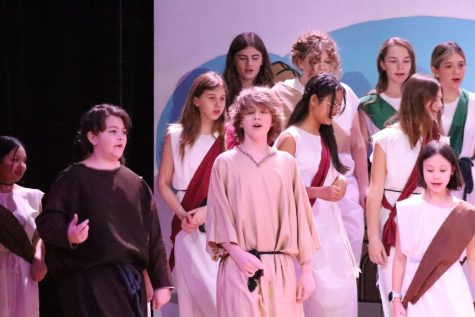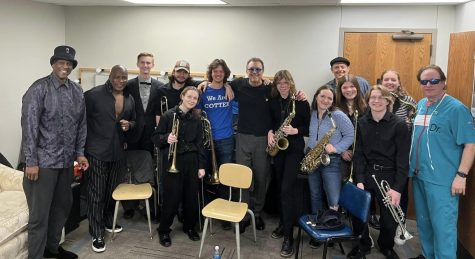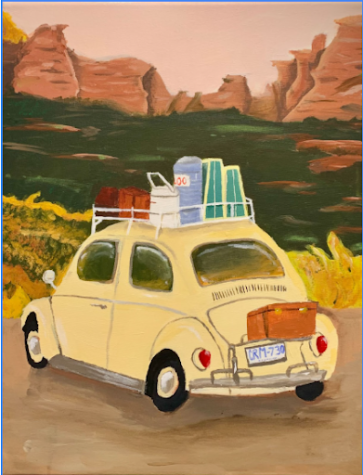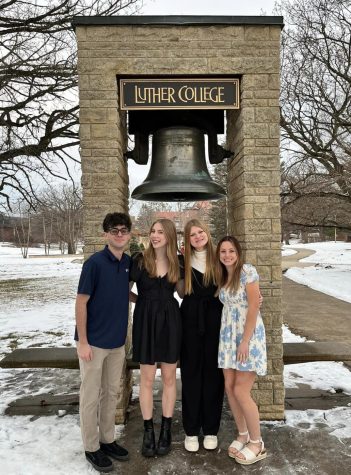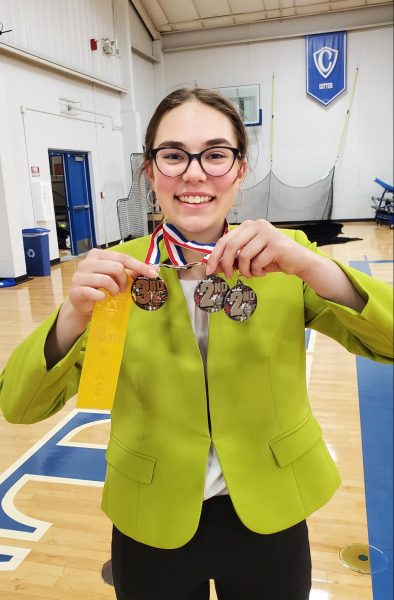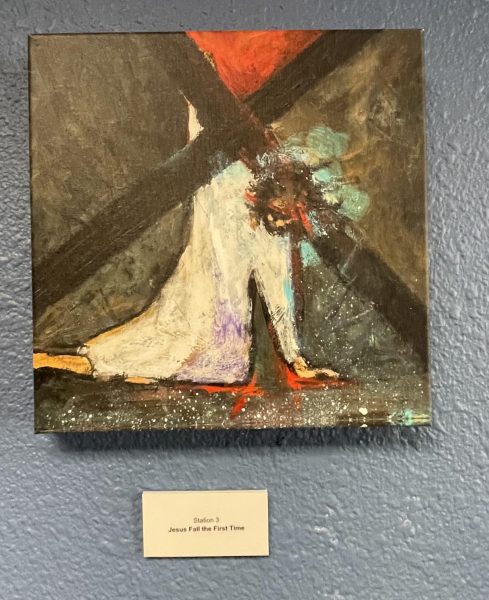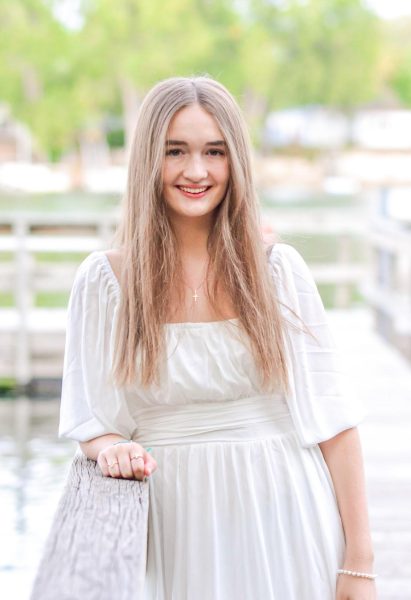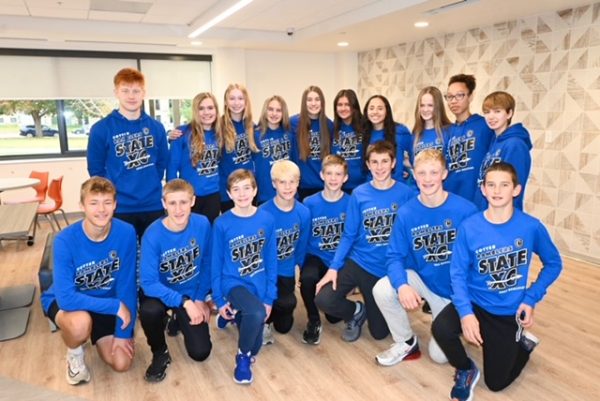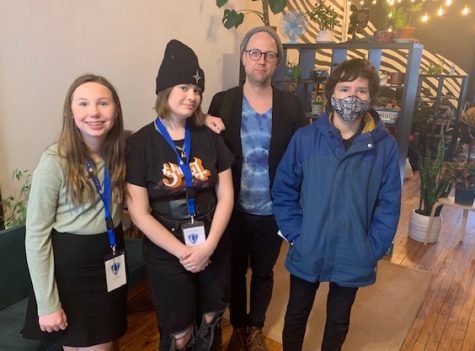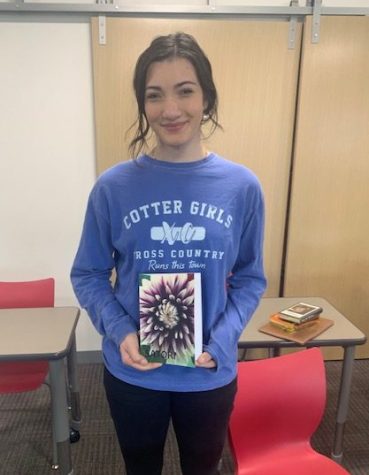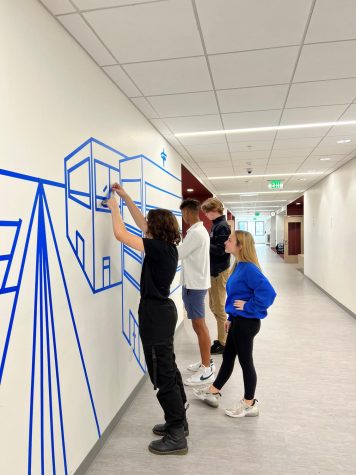Seniors leave impressive Music Listening legacy
The influential presence of music at Cotter has inspired a number of students to participate in clubs exclusively about music. A lesser-known but very successful group at Cotter is the music listening group, which competes in the MLC (music listening competition) for Minnesota.
A trio of seniors Rita Row, Ceili DeMarias, and Aidan Carlson have earned a trip to the State competition for three consecutive years. The 2019-2020 competitive season, the state meet was held on February 7.
“You can probably tell I’m pretty excited for this team of seniors,” Ms. Snyder said, Cotter’s music listening coach, said.
Music listening competitions are events that are held across the nation for all high school students. Established in 1988, the main purpose of the MLC is to “enrich students’ experiences with classical, ethnic, and popular music in a fun and competitive environment” and ” to assist teachers in their efforts to expand the musical experiences of students”.
Rita Row, class of 2020, joined the music listening group in her freshman year and has enjoyed it since. Initially, Rita joined for friends, fun, and cookies, and through the years her appreciation for the competitions has continued to grow.
Rita has been involved with music since 5th grade when she started the piano and engrossed herself furthered when she took up the alto-sax in 7th grade; an instrument she has carried throughout all of her high school years.
“Personally, (music listening) has given me a better appreciation for classical music. There are many facts you have to memorize in a short amount of time, and so it has also helped me be more organized,” Row said.
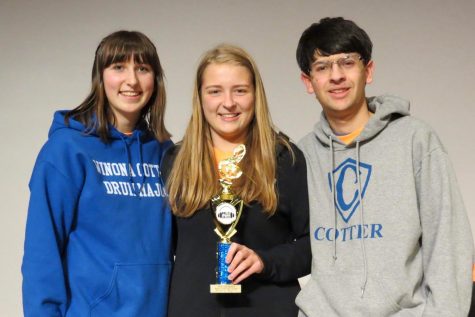
Rita also encouraged her friends to join the group. Madeline Mohan, another senior, joined as a sophomore. She has also been involved with music since 5th grade with the clarinet.
“Rita and Ceili convinced me to join music listening, but I also wanted to join in memory of my grandpa who has passed. He liked classical music a lot,” Mohan said.
While Madeline enjoys participating in music listening, she has described the competitions as “name that tune, but on crack”.
Music listening competitions are fast-paced and it is not for the faint of heart. Students start preparing for competitions in the fall and the events usually begin in January of that year. During this time, members are responsible for memorizing titles of songs, a song’s composer, the genre of various songs, and deeper facts about the songs such as where the composer was born and what inspired the song’s composition; knowing the deeper facts are useful for the tests at the meets. To prepare for competitions, the Cotter music listening group meets on Wednesday during flex A.
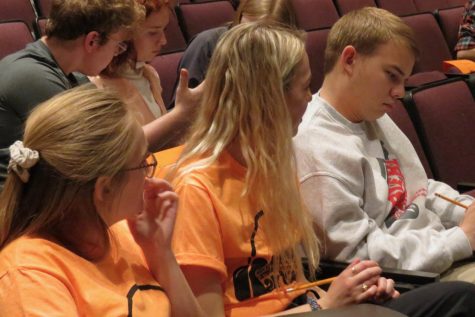
At the competitions, each trio is given a study guide with 50 songs and a playlist on the Naxos library app. Meets usually are composed of 5 tests and each is worth 20 points.
In the first round, a song will be played for about 15-30 seconds and each trio’s task is to identify the composer and title. In the second round, six excerpts from a song are played for 10-20 secs. Trios are then given one minute to answer 3-4 questions about the song such as when and what inspired the composer to write that song.
The third round is a lightning round; 2-7 seconds of a song is played and then trios have to identify where that song came from. The fourth round is then a multiple-choice round where participants do not listen to a song but instead have to answer questions about music theory or songs from the book.
The final round is the mystery round. In the last round, songs that are by composers from the practice book (but not songs from the practice book) are given and trios have to listen, then identify who wrote it and in what era.
The first and second top-scoring trio at the competitions move onto State, and only one group from each school can.
This year’s team is mostly seniors with some sophomores, the group and Ms. Snyder are hopeful more students will join for next year.


